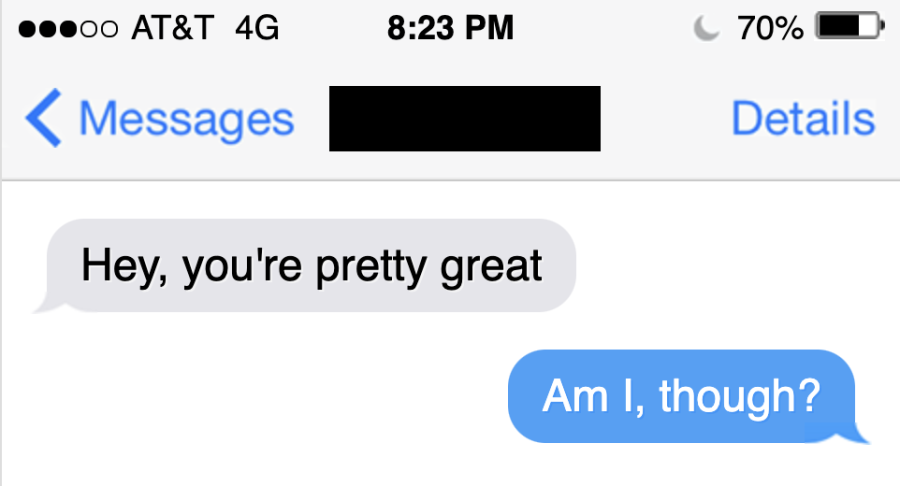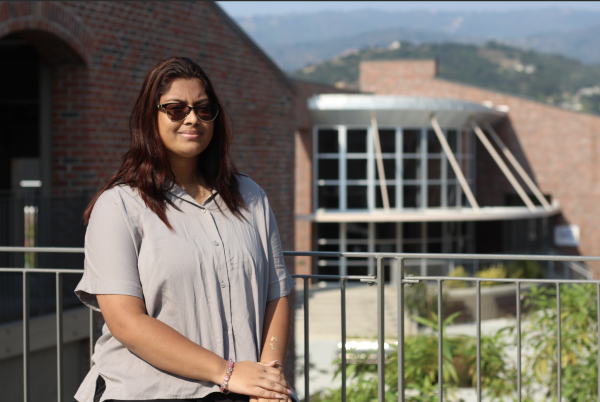Looking from a clear lens
How I learned to accept the opinions of others
February 13, 2023
I’m not perfect. It’s not hard for me to admit. After all, who is more aware of one’s shortcomings than themselves? However, when I volunteered at a camp for young elementary schoolers last summer and noticed that the kids seemed to worship me, it struck me that to them, I was flawless.
Soon after, one of the children I had mentored and become close to — in that way that teachers become friends with their students — told me excitedly that she wanted to be just like me when she grew up. It hit me, then, that I had become a role model.
This realization, however, wasn’t exactly pleasant. I panicked. I didn’t see myself as anything even close to a shining moniker for what a high school student should embody. And
Confused, I ended up asking the child why I was her role model, wanting to understand what it was she saw in me that I didn’t see in myself. She told me I seemed confident in everything I was doing, and that my confidence was inspiring.
It was off putting, mostly because I had never really seen myself that way. However, when I mulled over the situation from a neutral perspective, trying to see myself as she must rather than how harshly I judge myself, I realized she was right. Volunteering was something I had been doing for years, so when it came to interacting with kids and helping them out, I was confident in my actions.
In hindsight, it seemed obvious. I was experienced in volunteering and helping out kids, so of course I would be confident in doing it. So why had it been so difficult for me to simply accept and be content with the compliment?
I’ve never been good at accepting compliments, from teachers commending my work to my parents being proud of my accomplishments, even when I know I’ve done a good job. Take when I was accepted to a summer program at the California Scholastic Press Association: the place was fairly prestigious, yet when my parents expressed pride at my acceptance, I initially viewed it as something they didn’t mean and were just saying because they had to instead of a normal reaction to the achievement.
It’s easiest for us to be our own worst critics, and I’m definitely my own. Complimenting myself genuinely has always been something that doesn’t come naturally, and even accepting the appreciation of another person makes me feel unworthy — I never feel good enough for me to believe that others think of me in a positive light, and it makes it hard for me to accept compliments as truth.
What I soon realized though, was that my negative view of myself was stealing my joy. By acknowledging that, silencing my inner critic was possible. I could open up space to hear and receive compliments, and understand that the little girl who told me I was her role model wasn’t just saying so — she truly believed it. People often see us in a more unbiased light than we see ourselves, and while it felt unnatural, I could accept that my being seen as a role model was deserved. It’s important to catch yourself when you’re being too harsh and accept that you may have been—allowing yourself to fully
believe that you are capable and worthy of praise.According to David R. Kille’s Journal of Experimental Psychology, the reason behind the hard time that I initially had accepting the compliment is due to a variety of factors — most prominently low self-esteem. The journal states that an individual’s “relatively negative self-theories conflict with the positive information conveyed in compliments,” making it difficult to accept it as truth. It explains that the remedy to this is oftentimes processing the compliment with a concrete rather than abstract mindset — similarly to what I did when the girl I had mentored mentioned that I was her role model.
Rather than comparing her perception of me to the one I had of myself, and dismissing the compliment as a result, I looked at the physical proof — the confidence I had due to my experience — and reasoned that her opinion of me made sense. Similarly, when faced with a compliment that one is unsure how to accept, it often helps to look at the situation objectively — look at the reasoning behind why the person chose to give the compliment rather than immediately assuming that it isn’t warranted.
As humans, we are often our harshest critics. Although to this day I may not always feel worthy of the praise I receive, making an active effort to silence my inner critic, understand where people are coming from and recognize when I’ve done something well has both made me more willing to accept compliments and helped to improve my self-confidence.


















